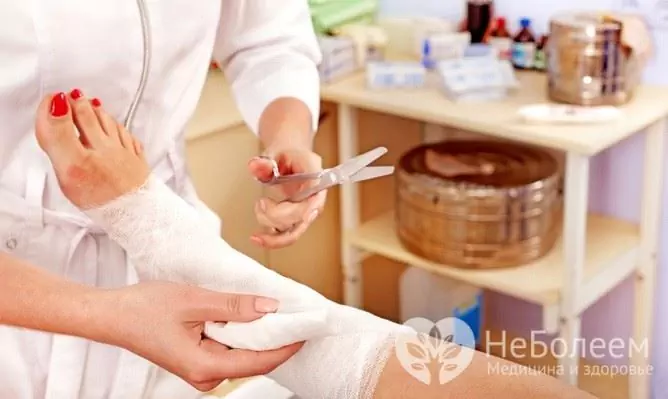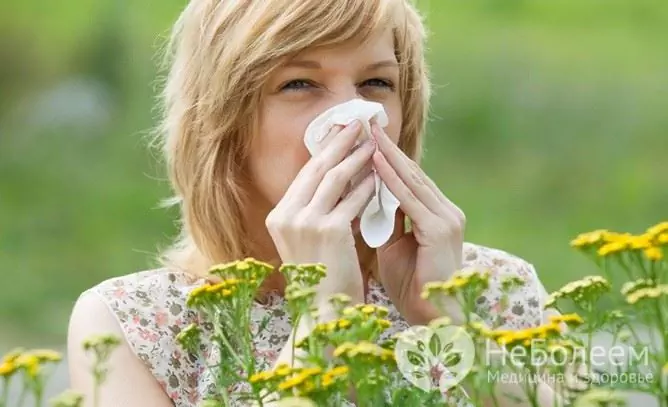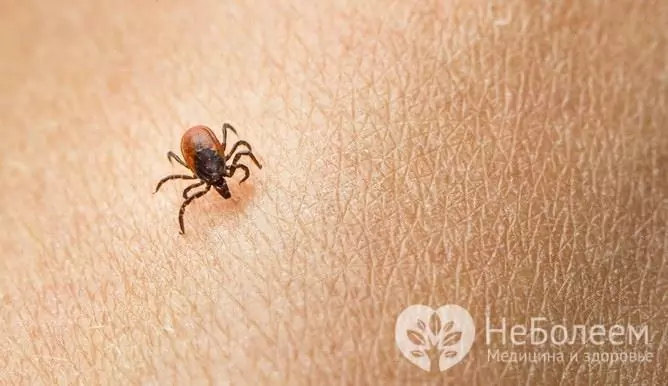- Author Rachel Wainwright wainwright@abchealthonline.com.
- Public 2023-12-15 07:39.
- Last modified 2025-11-02 20:14.
8 most dangerous summer diseases
The holiday season is coming. Many Russians already dream of outdoor recreation, tourist trips, beautiful beaches. At this time, I do not want to think about health problems and other unpleasant things, but there are topics that require constant attention. In the summer, the risk of contracting some dangerous ailments, which we will talk about today, increases many times over.
Tetanus
The causative agent of the disease belongs to the so-called conditionally pathogenic microflora. It is widespread and lives and reproduces in soil and water. Inactive forms of the pathogen (spores) easily tolerate prolonged heating, cooling and other aggressive influences. Spores persist in soil for 100 years.
In its active form, the tetanus pathogen releases an extremely dangerous toxin, which, entering the human bloodstream, causes an uncontrolled tone of all muscles. Patients experience seizures; there are problems with swallowing, chewing, stiffness of the limbs, congestion in the internal organs, respiratory and cardiac disorders develop. In the most severe cases, patients die from respiratory muscle paralysis or numerous complications.
For the transition to a dangerous form of the causative agent of tetanus, a temperature of about 37 ° C and a lack of oxygen are required. It is these conditions that are created when particles of contaminated soil fall into a deep narrow wound (for example, when punctured with a nail or chip, pricked with a needle). Therefore, tetanus is considered a "summer" disease: injuries of this kind in the summer are not uncommon. Children are especially at risk: they are very active and constantly get into some kind of trouble. Fortunately, prophylactic vaccination protects against infant tetanus, which is routinely administered to all children between the ages of 3 months and 17 years according to the vaccination schedule. It is recommended to maintain immunity in adults as well: they should be revaccinated every 10 years.
Tetanus is an insidious disease. Even regular vaccination is not a complete guarantee that a person will not get sick in case of injury. However, in those who are vaccinated, the disease, as a rule, is mild and does not lead to serious consequences. For maximum protection, if you are injured, you should go to a healthcare facility to administer tetanus toxoid. Remember that you cannot postpone a visit to the doctor (even if the wound is insignificant and does not hurt): the incubation period of the disease can be very short (from several hours), and delay in this case can have fatal consequences. About 60-70 thousand deaths from tetanus are registered in the world every year, and it is dangerous to treat this disease without due seriousness.

Source: depositphotos.com
Rabies
A person becomes infected with rabies when a sick animal bites or gets saliva on damaged skin. Such situations usually occur in nature, and village dogs, cats and other pets have a greater chance of getting an infection from wild animals than their urban counterparts.
The rabies virus affects the nervous system, causing a specific form of meningoencephalitis. Without a vaccine, death of an infected person is almost inevitable. The success of treatment directly depends on the speed of seeking medical help: the sooner this is done, the more chances that the victim will not get sick. It is important to remember the following: skin damage may be minor and heal quickly, but this does not guarantee the absence of infection. The incubation period of the disease can be very long: there are cases when signs of rabies appeared one year after the bite or more. Of course, in such a situation, doctors could not help an infected person.
Rabies prophylactic vaccinations are usually not given to humans. But it is possible (and necessary) to vaccinate pets annually, especially those that travel with their owners to nature. If you or your pet have been bitten by an unknown animal, it is important to remember the circumstances of the incident (time, place, type of animal, presence of a collar, etc.) and inform your doctor. If possible, check the condition of the "offender": if within 10 days the animal does not get sick, vaccination of the victim can be stopped.

Source: depositphotos.com
Angina
The risk of getting sore throat in the hot season increases many times. The fact is that the cause of the disease is streptococcus, which behaves freely in the human body. The activity of the pathogen is provoked by temperature changes when a person, heated up after going out on a sunny street, drinks cold water, eats ice cream or tries to cool off under an air conditioner. As a result, inflammation of the palatine tonsils develops, which is accompanied by discomfort when swallowing, fever, headache and other "delights" that can thoroughly ruin several days of vacation.

Source: depositphotos.com
Food poisoning
Summer vacations are rarely complete without these kinds of troubles. Suddenly, a whole series of symptoms appear: cramping pain in the abdomen, "gurgling" in the intestines, diarrhea. In more severe cases, vomiting, headache, dizziness and fever may occur. The reasons are usually explained as follows: "I ate something wrong." In fact, the source of the problem can be any, even the most harmless product that was stored or prepared, ignoring sanitary and hygienic standards.
There is no such thing as absolutely sterile food. Various pathogenic or opportunistic microorganisms live on the surface of products. In the heat, they multiply especially quickly and, getting into the human body, cause food poisoning. To avoid trouble, the following rules must be followed:
- try not to eat outside. Catering establishments can only be visited if you are sure of their good faith. It is best to eat at home;
- do not purchase perishable prepared foods. If shopping for food is essential, it is safer to choose a cinnamon roll than a burger. You should also refuse to use cream cakes - put off this pleasure until the winter holidays;
- subject foods to heat - boil milk, make cottage cheese pancakes, fry boiled sausage. Dairy products, sausages, meat and fish gastronomy, fast food are the leaders among the sources of summer food poisoning;
- while on vacation in foreign countries, be careful with local food and products. The temptation to try something exotic is very great, but the risk of poisoning increases many times over;
- do not eat mushrooms if you are unsure of their safety. Do not collect them in places where they can accumulate toxic substances (along roads, near cities and industrial zones);
- wash fruits and berries from your own plots thoroughly. From the fact that you have not watered them with any "chemistry", it does not follow that they are absolutely clean and harmless.

Source: depositphotos.com
Dysentery
When a high fever joins the diarrhea and vomiting and there are traces of blood in the stool, there is a chance that the person has contracted dysentery. This is a typical “dirty hands disease”. Infection occurs not only through food and drink. In summer, it is possible to get infected by swallowing water while swimming in a freshwater body.
If the fever and other symptoms persist within 2-3 days, you should consult a doctor. In this case, the usual antidiarrheal drugs are useless: the patient needs individually selected antibiotic therapy.

Source: depositphotos.com
Allergy
In the summer, the number of people suffering from allergies increases: it is caused by inhalation of pollen from flowering plants, insect bites, contact with "stinging" vegetation (hogweed, nettle, etc.), eating berries and fruits, and much more.
Patients who are aware of their allergy tendencies usually carry antihistamines with them. This can also be advised for healthy people, especially if they have to spend their holidays in tropical countries or at sea in unfamiliar surroundings.

Source: depositphotos.com
Cystitis
Cystitis usually affects women, and in most cases, hypothermia is the cause. In the summer, such troubles happen much more often than in the winter. There is nothing surprising in this: in cold weather a person tries to dress warmly and behaves cautiously, and in summer such foresight seems excessive. It is not unusual to sit on a cool bench in the heat, relax under the air conditioner, or lie on the beach in a wet swimsuit. As a result, there are frequent urges and pain when urinating, the temperature rises, and overall health worsens.
It is not difficult to avoid the occurrence of this extremely unpleasant and obsessive ailment: you need to protect yourself from hypothermia and wear loose underwear made of cotton or linen fabric, since synthetic panties do not allow air to pass through, which contributes to the activation of pathogenic microorganisms.

Source: depositphotos.com
Encephalitis
Infection with tick-borne encephalitis occurs during the period of activity of ixodid ticks, which in central Russia falls on May-September. Ticks live in forests and meadows, hide in the grass that grows along the paths, and cling to the clothes of people passing by or the fur of animals. A tick bite does not always lead to infection, but if it occurs, there is a possibility of developing a dangerous disease that affects the nervous system.
Tick-borne encephalitis is vaccinated, but most Russians are not vaccinated against it. Therefore, you need to be extremely careful when resting in the forest, in the countryside and even in a city park. Visiting dangerous places should be in tight clothing with long sleeves and legs, and closed shoes. After returning from the forest, you need to carefully examine your body: the tick usually chooses for a bite places with the most delicate and thin skin (folds, elbow and knee folds, etc.). If an insect is found, it must be carefully removed and taken to the laboratory. This is the only way to reliably know if a tick was a carrier of the infection. If possible, show the bite to the doctor.

Source: depositphotos.com
In summer, you need to take particular care of your health. Reasonable care and following simple rules of conduct will help you avoid a lot of trouble and have a trouble-free vacation.
YouTube video related to the article:

Maria Kulkes Medical journalist About the author
Education: First Moscow State Medical University named after I. M. Sechenov, specialty "General Medicine".
Found a mistake in the text? Select it and press Ctrl + Enter.






